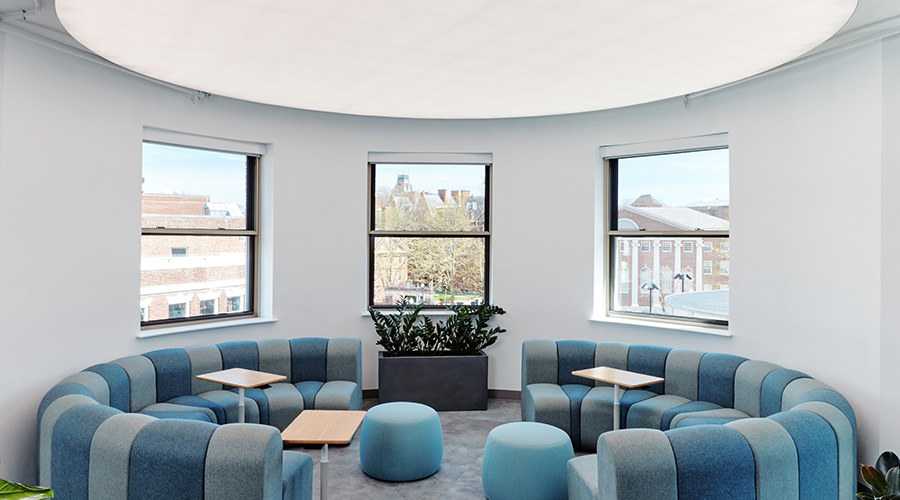Soundmasking Reduces Distractions for Occupants, Improves Speech Privacy
Sidebar about the advantages and benefits of soundmasking, especially for open office plans.
Of all the sets of letters associated with office acoustics — NRC, CAC, STC, etc. — probably the most important are also the simplest: A-B-C. In the world of sound management, those letters stand for absorb, block, and cover. The idea with A is to absorb sound in open areas so that it isn’t reflected back into the space. Blocking prevents sound from being transferred into adjacent spaces — for example, from one medical examination room to another. And covering means to mask distracting or otherwise unwanted sounds in a space. Ceiling panels offer choices for absorbing and blocking sound. For facility managers interested in option C, sound masking is the answer.
Masking sound is not “white noise,” although that term is often used to describe it. White noise contains a wide range of frequencies of equal intensity, while masking sound is engineered to match the frequencies of human speech. The idea is to deliver a soft sound that makes conversations less intelligible to people who might overhear them. That helps shield other employees from being distracted by coworkers talking, as well as helping to keep conversations private.
There are many potential applications for soundmasking in commercial and institutional facilities. The most common is for open plan offices. In those spaces, masking sound is used to reduce distractions. The soft, consistent sound makes it harder to hear specific words from a phone call or conversation in a nearby workstation, so that what could be a distraction simply blends in to background noise.
In that application, soundmasking also improves speech privacy. While it cannot provide absolute privacy, soundmasking makes it less likely that someone will be able to make out an overheard conversation. That function is especially important in settings like heath care, where personal information must be protected. In a doctor’s office, for example, soundmasking could be used in the reception area to prevent people in line or in the waiting area from listening to the person checking in.
Email comments and questions to edward.sullivan@tradepress.com.
Related Topics:














